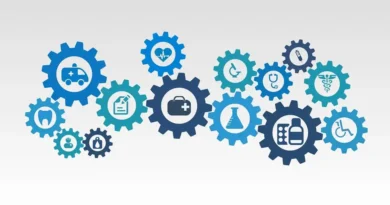Why You Should Take Mental Health Courses
An alarming number of people are dealing with depression, anxiety, and other psychological issues worldwide. Knowing more about mental health makes sense, given how much it influences how we engage with the outside world.
This can be accomplished by taking a mental health awareness course, which will provide you with various skills and information that will enable you to assist those around you more effectively.
By taking mental health courses, you’ll see how prevalent the issue can be for those dealing with it and get a viewpoint on how it can affect their lives.
Why is Mental Health Training Important?
Because mental health conditions are indistinguishable, a person may seem to be in good health while actually suffering. The goal of training is to encourage more people to seek treatment by assisting them in identifying mental discomfort in themselves and others.
Mental health education programs aim to raise awareness of prevalent mental health issues and lessen their stigma. People are taught how to identify the symptoms of harassment, trauma, flashbacks, suicidal tendencies, and stress in themselves and others.
Listed below are reasons why you should take these courses.
1. Provides Awareness
People can learn more about mental health through training when it comes to their own and others’ well-being, whether at the office or home. People participating in mental health education can envision how they might advocate for transition.
Positive mental health focuses on building conditions that enable you to grow and realize your full potential at your job, school, and life. We all occasionally go through personal struggles that might disrupt our lives and be confusing. We must have plans to safeguard our mental health at times of extreme stress.
2. Develop Coping Strategies
Although we are aware that not everything that can be harmful to our mental health can be avoided, training can help people become more stress-resistant. A course’s techniques can improve people’s welfare at both homes and at work by minimizing the effects of stress.
These classes not only give you a scientific understanding of mental illness and how to spot it, but they also give you the ability to help individuals who may require it. Knowing the best methods for approaching someone who may be struggling with mental health difficulties is crucial because doing so will make them feel safe and able to express their feelings.
3. Lessen The Stigma
The main source of this stigma is ignorance, which is something that courses on mental health awareness are working to alter. We expect to notice a difference in the way it is discussed in the community as more and more people decide to educate themselves using these chances.
The stigma associated with mental health disorders can be dispelled through lectures and activities in mental health training. Trainers can further promote empathy by asking participants to envision or recall an event that might have affected their mental health.
4. Helps Understand Other’s Situations
Mental health issues have their risk considerations and warning indications, just like most illnesses. A key component of making sure those affected may receive the assistance they require is recognizing what these appear like and how they can present from individual to individual.
You will be better able to spot them in the others around you and be ready to provide support if necessary if you are more informed of the signs and warning indications to look out for.
Also Read: What is Precast Concrete Used for?
Conclusion
When organizations adopt mental health training courses, anxiety, despair, and panic become more commonplace. People are less likely to endure silent suffering if they reduce mental health stigmas. Focusing on the entire person and connecting mental and physical health is crucial.
Individuals’ feelings of shame while hurting can be diminished by teaching them how to manage their well-being. They are less likely to disengage or lose interest in what they do when they feel at ease discussing their well-being.




